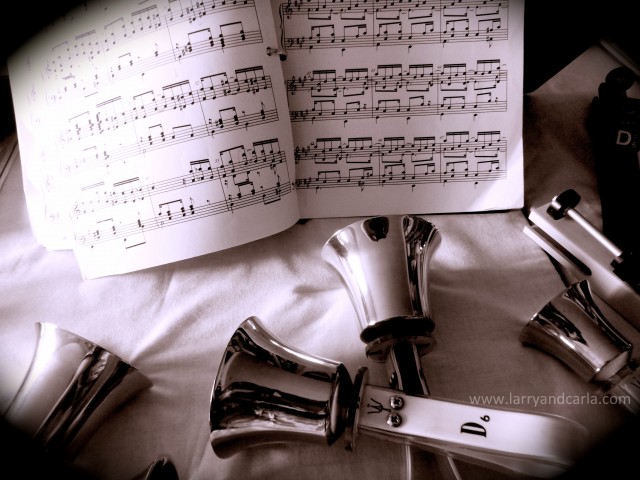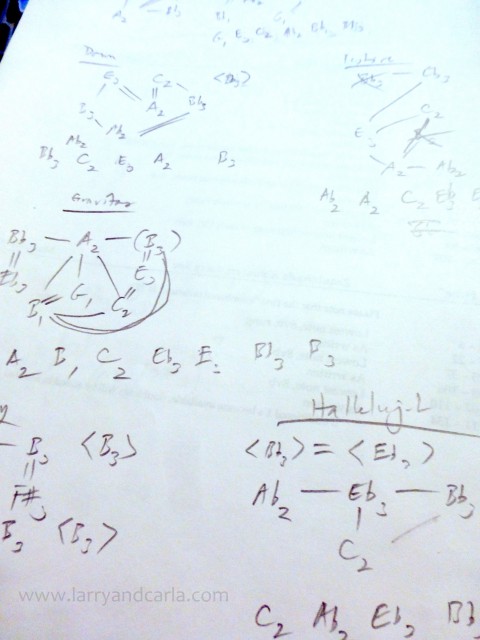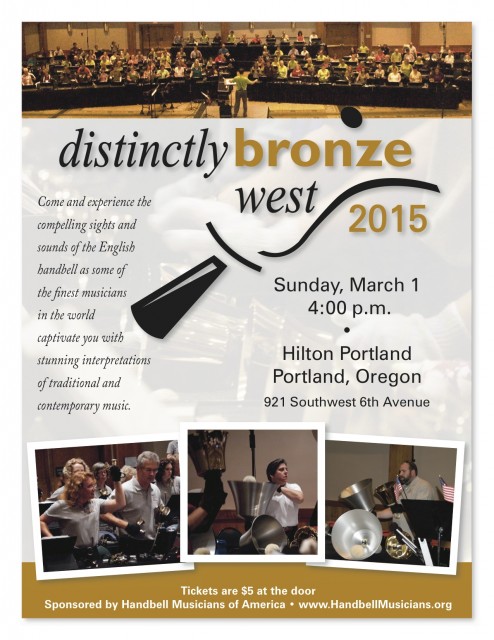
Our trip to Portland will be happening in just a few days’ time. We’ll be taking part in Distinctly Bronze West, a fun and challenging event where over a hundred experienced handbell musicians will gather together to rehearse and perform some exciting music, under the direction of Dr. Bill Payn.
This year’s repertoire is as follows:
- Carillon on a Ukrainian Bell Carol – Gerald Near, transcr. Sondra Tucker
- Consecration – William Payn
- Down the River (Riding the Rogue) – Jason Krug
- Festive Dance – Georges Bizet, transcr. Kevin McChesney
- Gravitas – Michael J. Glasgow
- Gwerzy – D. Armstrong/C. O’Snodaigh, arr. Clint Hagen
- Hallelujah – Leonard Cohen, arr. Joel Raney
- Horizons – William Payn
- Light of Peace – Veronica Bigham and Derek Hakes
- Passacaglia – G.F. Handel, transcr. William Griffin Beckenhorst
- Requiem – William Payn
- Tico Tico, No Fuba – Zequinha de Abreu, arr. Larry Sue
Preparing for a high-level handbell event
One of the challenges about Distinctly Bronze, and other high-level handbell events, is that it’s essential to know the music very well before you go there. It’s not the kind of handbell event where you can get there, sight-read the music, and hope for the best. You have to be familiar with each piece – and “learning the notes” is just the first part of that. If you think about it, playing handbells in a large group is like being just part of one big instrument; imagine a piano where you have just a handful of notes that are your responsibility (and they’re not necessarily all notes that are next to each other on the keyboard), and other people have control of the other notes around you.
The interesting challenge is to be able to play your notes at the right time, fitting them between other people’s notes, and playing them with the right touch to match what’s happening around you. The goal is to play your bells in such a way that the listener hears the music as a whole, and isn’t distracted by the fact that different bells are being played in different ways by more than a hundred different people. Events like these are not about individuals; they’re about a group of people making music together – and that takes teamwork and practice.
Using graph theory to position bass handbells
So we’ve been preparing for this since Christmas; annotating the scores to make sure we don’t miss a tempo change, or forget to pick up a bell or handchime in time to play it; marking difficult passages to remind us not to miss those accidentals or tricky rhythms. Yes, all those scribbles really do mean something important! And even the scribbles in the picture below mean something – at least, they do to Larry, who uses his knowledge of graph theory to help work out the best way to position the bass bells for each piece.

We’ve also been playing the music on actual bells, over and over – because even when you feel that you’ve stared at the notes on the paper until your eyes are burning, there’s no substitute for picking up some bells (preferably the right ones) and making sure all your ideas are actually possible – or will become possible with a lot more practice!
The upcoming performance of Larry’s arrangement of Tico Tico will be the first one ever! The piece has been the subject of much discussion among DB West participants, as we all get to grips with sharing bells with neighbours, changing bells at high speed, and working out the best ways to deal with fast chromatic passages. It’s going to be exciting to see how this piece sounds in performance next Sunday!
We’re looking forward to this year’s Distinctly Bronze West. Full details of the concert are below. If you’re in the Portland area on Sunday, March 1st, we’d love to see you there!
